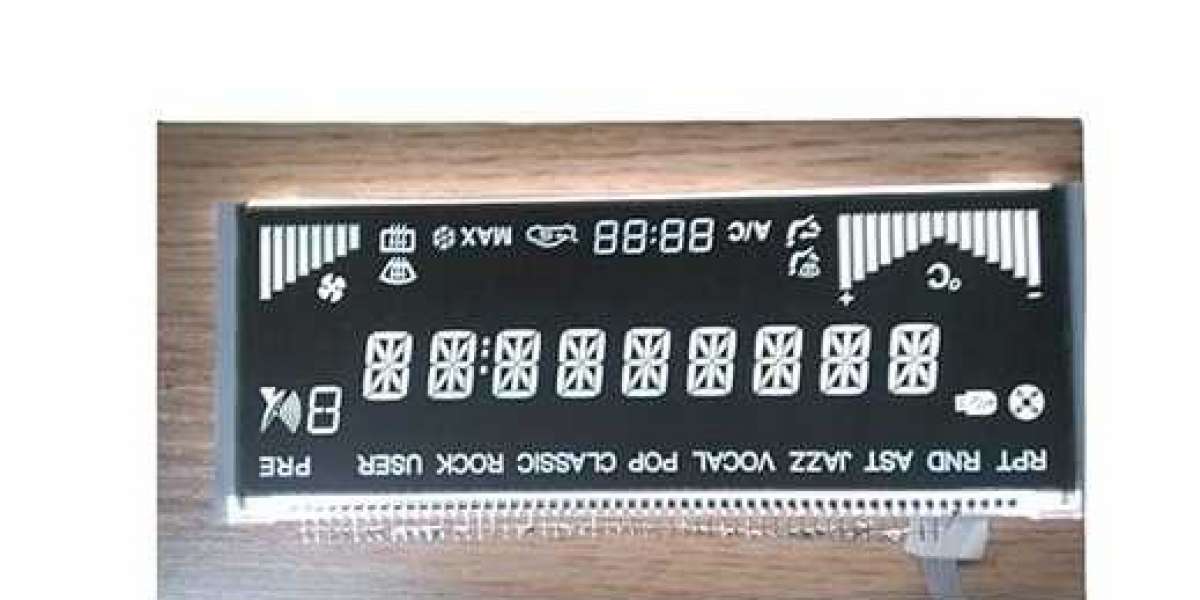In today's technology-driven world, the demand for energy-efficient display solutions is more significant than ever. As industries seek to reduce energy consumption while maintaining high performance, black and white LCD screens have emerged as a reliable option. This article explores the benefits of black and white LCD technology, its applications across various sectors, and the innovations brought forth by companies like Shenzhen Yicheng Optoelectronic Technology Co., Ltd., a leader in the production of LCD screens and supporting solutions for industrial control.
Understanding Black and White LCD Technology
What Are Black and White LCD Screens?
Black and white LCD (Liquid Crystal Display) screens are specialized displays that utilize liquid crystals to modulate light without the need for color filtering. This simplicity not only reduces manufacturing costs but also enhances energy efficiency. Unlike color displays that require multiple channels to produce images, black and white screens operate with a straightforward design that focuses on two primary colors: black and white.
How Do They Work?
Black and white LCDs function by controlling the passage of light through liquid crystals sandwiched between two polarizing filters. When an electric current is applied, the liquid crystals align to allow varying degrees of light to pass through, creating images in shades of black and white. The absence of color filters means that these displays consume less power while still providing clear visibility.

Advantages of Black and White LCD Screens
1. Energy Efficiency
One of the most significant advantages of black and white LCD screens is their low power consumption. Since these displays do not require multiple color channels like RGB (Red, Green, Blue) displays, they operate more efficiently. Key factors contributing to their energy efficiency include:
Reduced Backlight Requirements: Black and white screens often require less intense backlighting compared to color displays, further minimizing energy use.
Static Images: When displaying static images or text, black and white screens can maintain visibility with minimal power draw.
2. Enhanced Readability
Black and white LCDs offer excellent contrast between the two colors, making them easier to read in various lighting conditions. This high contrast is particularly beneficial in environments where clarity is essential:
Industrial Settings: Operators can quickly read information on control panels without straining their eyes.
Medical Devices: Clear displays are crucial for monitoring patient data accurately.
3. Cost-Effectiveness
The manufacturing process for black and white LCDs is generally simpler than that for color displays. This simplicity translates into cost savings during production, making these screens an economical choice for many applications:
Lower Production Costs: The absence of color filters reduces material costs.
Longer Lifespan: With fewer components to fail, black and white LCDs can offer a longer operational life.
Applications of Black and White LCD Screens
1. Industrial Control Systems
In industrial environments, reliability is key. Black and white LCD screens are commonly used in control panels due to their durability and low power requirements. They provide operators with essential information at a glance without consuming excessive energy.
2. Medical Devices
Medical equipment often requires clear displays that can be easily read under various lighting conditions. Black and white LCDs are ideal for devices such as:
Patient Monitors: Displaying vital signs clearly.
Diagnostic Equipment: Providing critical information quickly.
3. Consumer Electronics
Many consumer electronics utilize black and white LCD technology due to its simplicity and effectiveness:
Digital Watches: Often use black and white displays for easy readability.
E-Readers: Devices black-and-white e-ink technology to provide a paper-like reading experience while conserving battery life.
4. Automotive Displays
Black and white LCDs are increasingly being used in automotive applications due to their reliability in varying temperatures and lighting conditions:
Dashboard Displays: Providing essential information without draining the vehicle's battery.
Navigation Systems: Offering clear visibility in bright sunlight or at night.

The Role of Black and White LCDs in Energy Efficiency
Energy Consumption Dynamics
The energy consumption dynamics of black-and-white LCDs make them an attractive choice for businesses looking to reduce their carbon footprint:
Constant Backlight: Unlike OLED displays that turn off pixels to save energy, black-and-white LCDs utilize a constant backlight that remains on regardless of the image displayed. However, since they require less power than color displays overall, they remain an efficient option.
Sustainable Practices
Incorporating black-and-white LCD technology aligns with sustainable practices by reducing energy consumption across various applications:
Long-Term Savings: Businesses can benefit from lower operational costs associated with reduced energy usage over time.
Eco-Friendly Solutions: Using less energy contributes to a smaller environmental impact, appealing to consumers who prioritize sustainability.
Innovations in Black and White LCD Technology by Yicheng Optoelectronic
Shenzhen Yicheng Optoelectronic Technology Co., Ltd. is at the forefront of developing innovative solutions within the realm of black-and-white LCD technology. Their commitment to research and development has led to several advancements:
1. Improved Backlighting Techniques
The company has invested in research aimed at enhancing backlighting techniques for their black-and-white displays. By optimizing backlight intensity based on content displayed, they can further reduce energy consumption while maintaining visibility.
2. Enhanced Durability
Yicheng has focused on improving the durability of their products through advanced materials that withstand harsh industrial conditions. This ensures that their black-and-white LCD screens perform reliably over extended periods.
3. Customization Options
Recognizing the diverse needs of clients across various industries, Shenzhen Yicheng offers customization options for their black-and-white LCD screens. This flexibility allows businesses to tailor products according to specific requirements, enhancing usability across different applications.

Conclusion
Black-and-white LCD screens present a reliable solution for energy-efficient displays across various industries. Their low power consumption, enhanced readability, cost-effectiveness, and versatility make them an ideal choice for applications ranging from industrial control systems to consumer electronics.
Shenzhen Yicheng Optoelectronic Technology Co., Ltd.'s commitment to innovation ensures that these displays continue to evolve, meeting the growing demands for sustainability in technology. As businesses increasingly prioritize energy efficiency, understanding the advantages of black-and-white LCD technology will be essential for making informed decisions about display solutions.
In summary, whether you are looking to enhance your product line or seeking reliable display solutions for specific applications, black-and-white LCD technology offers an array of benefits that cannot be overlooked in today’s energy-conscious market.
The Versatility of Black and White LCD Screens: From Industrial Applications to Consumer Electronics







